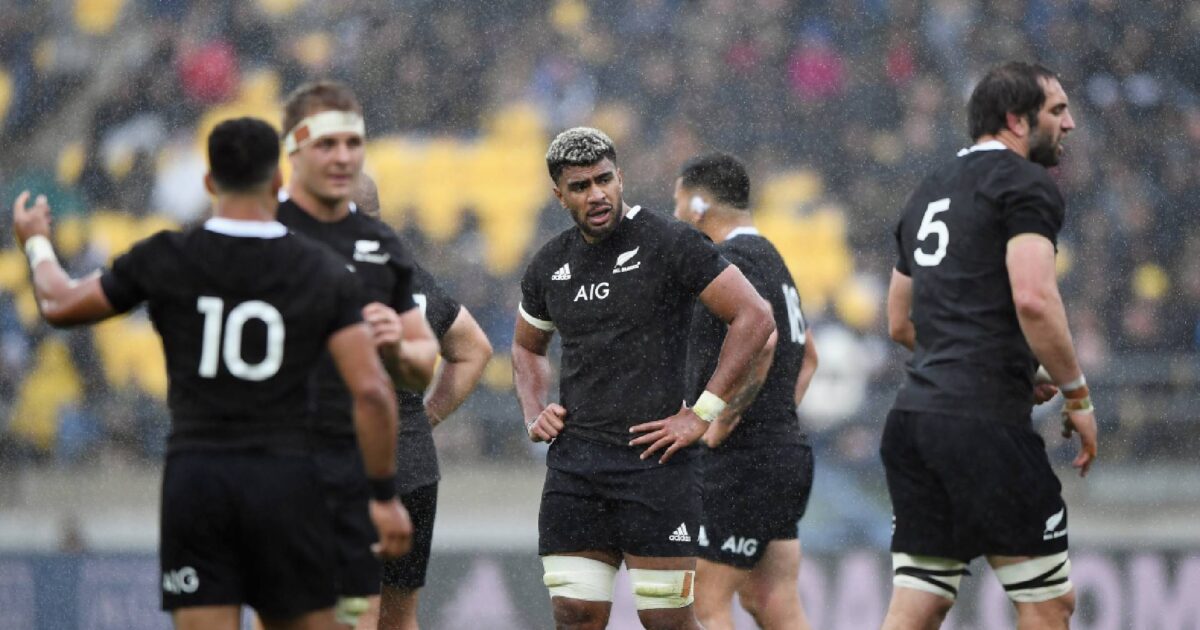Where was the drop kick?: Five key takeaways from All Blacks' draw with Wallabies

Cameron McMillan looks at five takeaways from the All Blacks‘ 16-16 draw with the Wallabies in Wellington.
Drop goals continue to be ignored
With the scores locked up and time expired, amazingly both teams had it there for the taking. Australia shaped up for a drop goal but didn’t take it before the All Blacks went down the other end and did the same thing.
Richie Mo’unga briefly stood in the pocket with the posts right in front of him but he didn’t receive the ball. Instead the test ended with the ball being spread out wide and knocked on metres short of the line. Sound familiar?
You only have to go back to 2018 when the All Blacks lost to the Springboks also in Wellington. Gregor Paul wrote a column at the time headlined ‘All Blacks need to change mindset when it comes to drop goals’ and the side appeared to when Beauden Barrett kicked two in consecutive tests against England and Ireland later that year.
If the All Blacks aren’t going to kick a drop goal five metres out right in front of the posts with scores tied and time expired, then I’m not sure when they ever will again.
Let’s stop with the one-hand groundings
The first try of 2020 started with George Bridge passing on his outside to Rieko Ioane on the left-hand wing and it appeared having three world-class wings on the field was a masterstroke by Ian Foster, although replays showed Ioane was lucky to get away with putting a foot in touch in the lead-up to Jordie Barrett’s five-pointer.
Ioane then produced a clanger with his botched grounding on halftime. Instead of the All Blacks going up possibly 15-3 at the break it remained 8-3 because of the pointless display of showmanship.
He’s still got a decent strike rate after pulling it off 25 out of 26 times but it’s probably time to put away the one-hander grounding and switch to the classic breadbasket dive.
https://www.instagram.com/p/CGMH7VYgZv2/?utm_source=ig_web_copy_link
88 minute games are better than 80
The test did have its moments but the final eight minutes from Reece Hodge hitting the post to Jordie Barrett’s final knock-on, was real heart in your mouth stuff. It was pseudo golden point and seemed never-ending.
Here’s a brief breakdown post the post being hit:
– The All Blacks recovered from defending on their own line after an Ardie Savea turnover (which arguably saved them from defeat).
– The All Blacks botched an attacking lineout (a rare set-piece mistake in a crucial spot).
– The Wallabies got to halfway before knocking on.
– The All Black surged to five metres short of the tryline before Karl Tu’inukuafe knocked on.
– The Wallabies lost it again after a short advantage.
– The All Blacks managed to knock it on one more time to end the test.
I can’t think of a more compelling stretch to finish a test match, let alone any game of rugby where both teams had a chance to win it after the 80-minute mark.
https://www.instagram.com/tv/CGMj6XsA3V-/?utm_source=ig_web_copy_link
Sam Cane is going to lead by example
The new All Blacks skipper made 25 tackles, nine more than anyone else in the test. An impressive workload for the All Black number seven who didn’t miss any tackle attempts. He also beat more defenders (one) than second-five Jack Goodhue who had a very quiet test with four metres gained from his four carries. Aaron Smith’s performance was also noteworthy. He was outstanding during Super Rugby Aotearoa so it should be no surprise that in his ninth All Blacks’ season that the halfback remains one of the best on the field.
Day time rugby is the best
Apologies to Northern Hemisphere fans who had to get up in the early hours on a Sunday but 4pm Sunday is a great time for test rugby. A shame the test wasn’t a sell-out but maybe we could put that down to lingering Covid fears in the capital. It was also great to have the Wellington gale playing its part once again.










































































